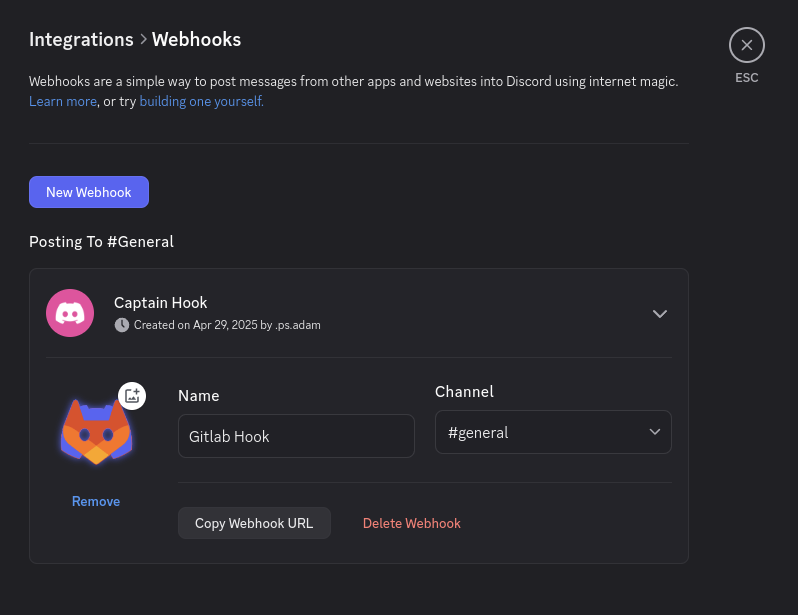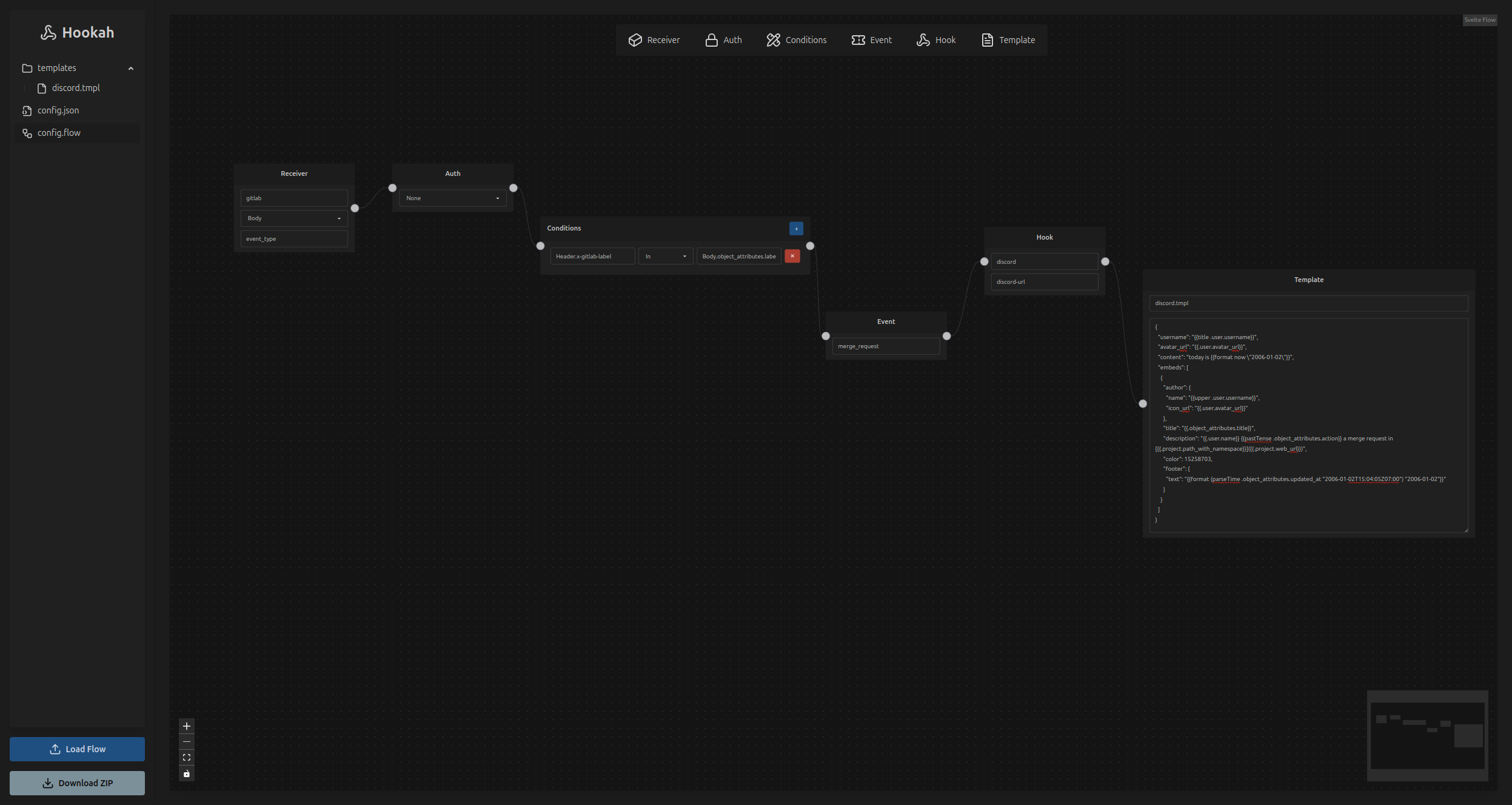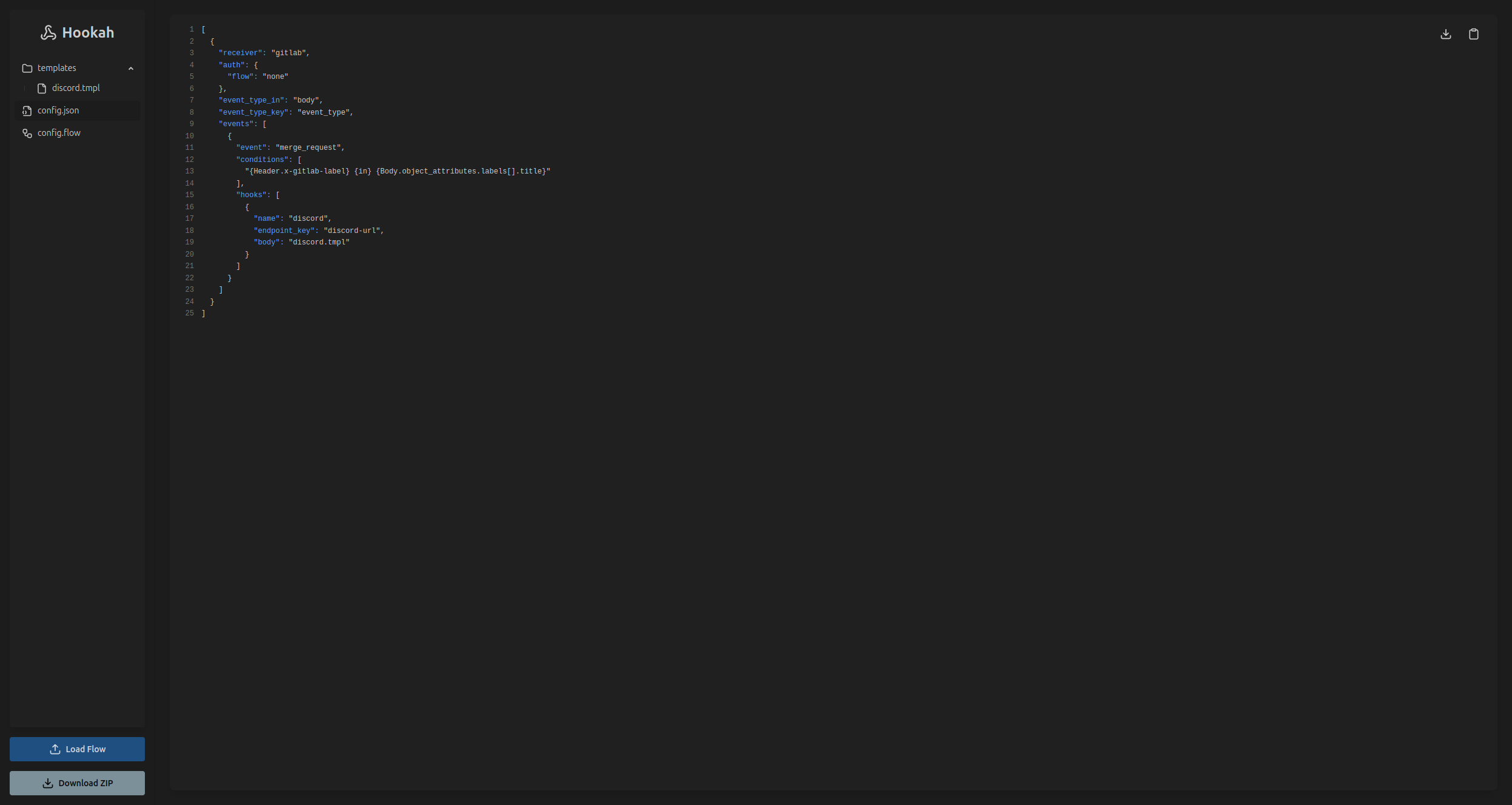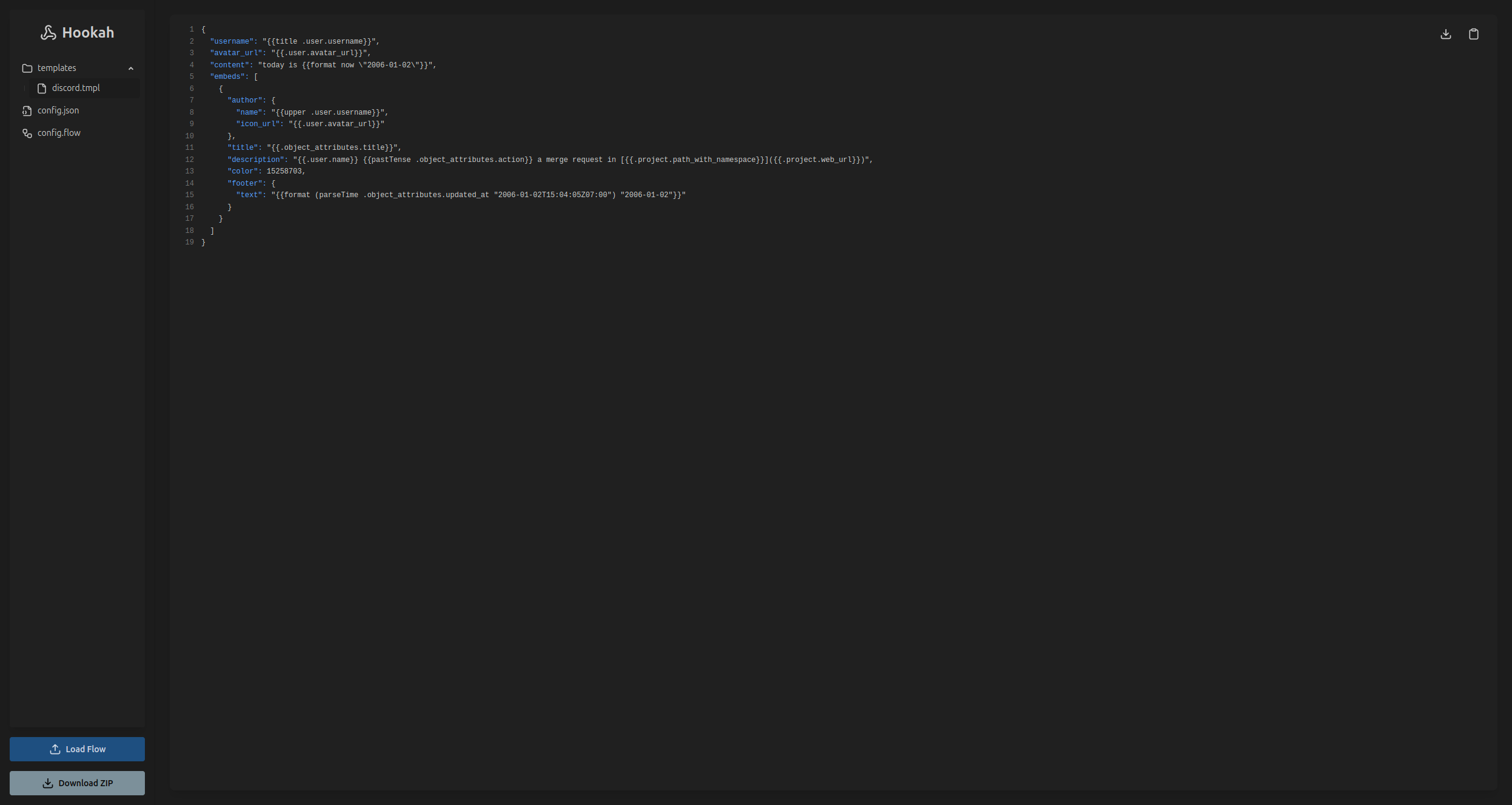Quick Introduction
Hookah is a lightweight, stateless, zero-dependency webhook router written in Go. It acts as a bridge between webhook sources (like GitLab, GitHub, etc.) and destination targets (such as Discord), forwarding events only when they match defined rules.
Core Features
-
Webhook Receiver
Accepts incoming webhook requests from various services. -
Rule Engine
Filters incoming events based on headers, query params, or body fields. -
Conditional Forwarding
Forwards messages only when all conditions are met. -
Reusable Templates
Define templates once and reuse them across events. -
Dynamic Payloads
Compose outgoing requests using data from the incoming payload. -
Visual UI Config
Use hookah-ui to build your config visually and exportconfig.json,templates, and editable flows.
Setting Up a Discord Webhook
Before testing Hookah, you’ll need a Discord webhook to forward events to.
- Open your Discord server.
- Navigate to Server Settings → Integrations → Webhooks.
- Click New Webhook, give it a name, select a channel, and click Copy Webhook URL.
You’ll use this URL as the value for the
discord-urlquery parameter.
Example Webhook Setup:

Creating Your Config with hookah-ui
Instead of writing JSON manually, you can use hookah-ui to visually build your configuration.
Steps
- Visit hookah-ui
- Add receivers, events, conditions, templates, and webhook targets.
- Download the ZIP — it includes:
config.jsontemplates/folderconfig.flow(can be imported later for editing)
Hookah-UI Screenshots
Flow Editor

Config Output

Template Output

Sample Config (config.json)
Below is a basic Hookah config that listens for GitLab merge_request events and forwards them to a Discord webhook
only if the x-gitlab-label matches a label on the MR.
[
{
"receiver": "gitlab",
"auth": {
"flow": "none"
},
"event_type_in": "body",
"event_type_key": "event_type",
"events": [
{
"event": "merge_request",
"conditions": [
"{Header.x-gitlab-label} {in} {Body.object_attributes.labels[].title}"
],
"hooks": [
{
"name": "discord",
"endpoint_key": "discord-url",
"body": "discord.tmpl"
}
]
}
]
}
]
Example Template (templates/discord.tmpl)
This template formats the GitLab merge request event into a rich embed for Discord.
{
"username": "{{title .user.username}}",
"avatar_url": "{{.user.avatar_url}}",
"content": "today is {{format now "2006-01-02"}}",
"embeds": [
{
"author": {
"name": "{{upper .user.username}}",
"icon_url": "{{.user.avatar_url}}"
},
"title": "{{.object_attributes.title}}",
"description": "{{.user.name}} {{pastTense .object_attributes.action}} a merge request in [{{.project.path_with_namespace}}]({{.project.web_url}})",
"color": 15258703,
"footer": {
"text": "{{format (parseTime .object_attributes.updated_at "2006-01-02T15:04:05Z07:00") "2006-01-02"}}"
}
}
]
}
Running Hookah with Docker Compose
Spin up Hookah quickly using Docker:
services:
hookah:
image: adamiscool/hookah:v0.1.3
ports:
- "3000:3000"
environment:
PORT: 3000
CONFIG_PATH: /etc/hookah/config.json
TEMPLATES_PATH: /etc/hookah/templates
volumes:
- ./config.json:/etc/hookah/config.json:ro
- ./templates:/etc/hookah/templates:ro
restart: unless-stopped
Start it with:
docker compose up -d
Test It with curl
You can simulate a GitLab webhook using the following curl command:
curl -X POST http://localhost:3000/webhooks/gitlab?discord-url=YOUR_DISCORD_WEBHOOK_URL \
-H "Content-Type: application/json" \
-H "x-gitlab-label: API" \
-d '{
"object_kind": "merge_request",
"event_type": "merge_request",
"user": {
"name": "Administrator",
"username": "root",
"avatar_url": "http://www.gravatar.com/avatar/e64c7d89f26bd1972efa854d13d7dd61?s=40&d=identicon"
},
"project": {
"web_url": "http://example.com/gitlabhq/gitlab-test",
"path_with_namespace": "gitlabhq/gitlab-test"
},
"object_attributes": {
"title": "MS-Viewport",
"updated_at": "2013-12-03T17:23:34Z",
"labels": [
{
"title": "API",
"description": "API related issues"
}
],
"action": "open"
}
}'
Replace YOUR_DISCORD_WEBHOOK_URL with the actual URL you copied from Discord.